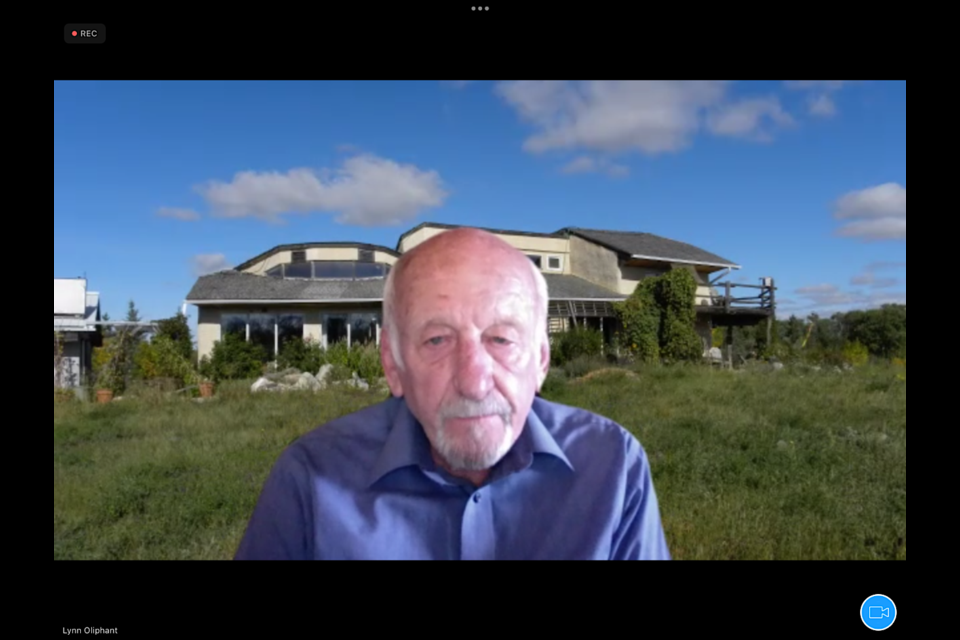SASKATOON - A court action has been filed in King’s Bench Court against SaskPower to try and stop the expansion of gas-fired electricity generation.
The action was filed March 31 by Climate Justice Saskatoon and seven residents, including Sabrina Dykstra, Lynn Oliphant, and Harold Pexa. The case will be argued by Saskatoon lawyer Glenn Wright on a non-billable basis.
The defendants are Saskatchewan Power Corporation, Crown Investments Corporation of Saskatchewan, and the Government of Saskatchewan.
According to the applicants' news release, they are claiming that the government action to expand gas-fired electricity generation “violates our Charter rights to life, security of person, and equality and that the government has a duty to mitigate its emissions. The applicants are asking the court to order SaskPower to set a reasonable target to decarbonize and achieve Net-zero emissions by 2035.”
According to their news release, they “are challenging SaskPower in court because they continue to pursue business as usual. We are in a climate emergency and need ambitious action now, not decades from now. We face a rapidly closing window of opportunity to secure a liveable and sustainable future for all.”
During their media availability, Oliphant said Saskatchewan is number one in per capita greenhouse gas emissions in Canada, “and our government and Crown corporations still have their foot on the accelerator. Building new electrical generating plants that burn fossil fuels without abatement is both foolish from an economic standpoint and extremely dangerous from the standpoint of sustainability of the human civilization.”
He said the government and SaskPower are taking a backwards step at huge cost to the taxpayers of the province.
“It’s time that we all got on the right side of the road before we hit tipping points that will seriously restrict our capacity to address this threat."
In their release the applicants pointed to SaskPower currently building a new gas-fired electricity plant near Moose Jaw and their plans to build another near Lanigan. They also note the current provincial Management and Reduction of Greenhouse Gas Regulations permit SaskPower to increase greenhouse gas emissions.
In speaking to reporters Wright acknowledged the court process could be slow and have uncertain outcomes. "It's sort of counter-intuitive to imagine responding to an emergency by filing a court application, but some of these applicants have been engaging with these respondents for years and their concerns have been brushed aside."
"We believe their Charter rights have been violated by the respondents' actions and they are asking the court for justice."
As for why they are seeking change through the courts, Oliphant said "it gets their attention."
In response to those who contend the correct way to set policy is through an election, Oliphant replied "we have a problem with democracy for one thing," pointing to a first-past-the-post electoral system "that doesn't really reflect what the people actually want."
"Just bringing this to the forefront hopefully educates more people and perhaps changes the way they will vote in the future."
Government response
In speaking to reporters at the Legislature Tuesday, Minister of Justice and Attorney General Bronwyn Eyre said they were aware of the court application and said there have been similar cases around the world. She could not comment on the details of the legal case but did have a comment on the policy side of it.
“It would be intriguing to ask how the group in question would propose to power the province if we phased out natural gas,” said Eyre.
Eyre pointed out people in Saskatchewan “live in a very cold climate, very unforgiving climate” and noted they are seeing energy and climate policies around the world “really reach a point of confrontation with reality.”
She also noted in her remarks that renewables were part of the mix but not enough to power the province.
“There are real underpinnings, policy underpinnings to these things which are of existential importance to the people of the province, frankly, because we don’t want to freeze in the dark.”




